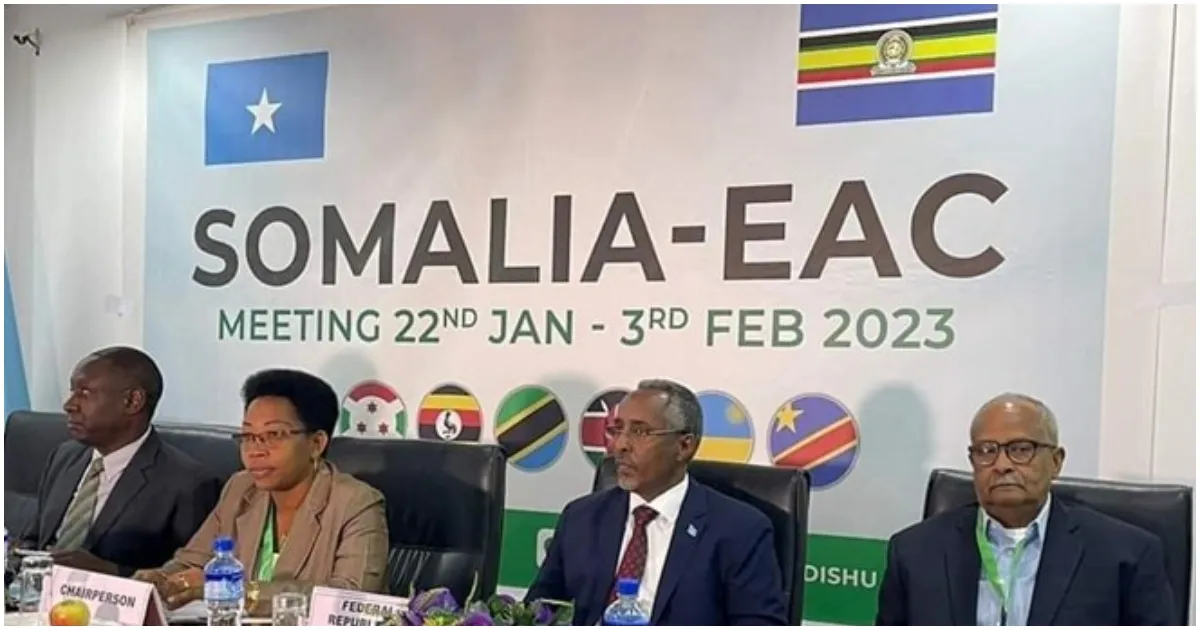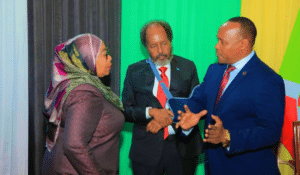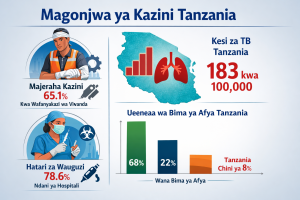
Maritime border row with Kenya, Terrorism-infested, and political Instability: Is Somalia what the EAC needed?
Ending the Long Wait
November 24, 2023, marked a turning point for Somalia’s regional status as the beleaguered state joined the East African Community. While this is perceived as a move in the right direction for Somalia and the ever-expanding EAC, questions will always remain on just how valuable Somalia would be for the union. In a recent article on the EAC’s integration challenges, trust issues were highlighted as topping the list. While there has never been a smooth integration in the traditional community of three states (Kenya, Uganda, and Tanzania), at least there was a shared level of relative stability politically and economically, making cross-border engagements easier.
Roughly a decade ago, Somalia’s first attempt was turned down owing to instabilities at all levels – political, legal, and security. However, one would make a case that the inclusion of South Sudan, Burundi, and the Democratic Republic of Congo, the latest but unstable members, might have emboldened Somalia in a way. This time around, they got the nod, ending their long wait. The addition of a traditionally unstable state into the regional block begs the most fundamental question – is Somalia’s EAC inclusion a win-win for both sides or a costly mistake for the block?
Political Instability, Terrorism

Somalia’s history of terrorism and unstable governments is no secret. A long civil war devastated the country for decades, putting it in one of the many sad stories in the world. Somalia ranks among the few global conflict hotspots characterized by the intensity of prolonged civil war since the 1980s. To date, the country continues to record incidents of armed, organized violence against civilians, which might complicate trade and international integration.
Most of Somalia’s problems in recent history stem from the long-standing power of the notorious al-Qaeda-linked Al Shabaab group. The terrorist organization continues assaults on military and civilian targets and controls some swathes of land to date. Although the group has been losing territory in significant developments in recent years, it still holds ground in some critical regional areas making it hard for the government to run a country properly.
Kenya, the ever-present EAC member, has been in direct military operations in Somalia for over a decade. In 2011, Kenya Defense Forces entered Somalia following border skirmishes and the kidnapping of tourists. The force would later be re-purposed to serve under the African Union Mission. With a complete withdrawal slated for late 2024, Somalia might have to test her military muscle against Al Shabaab, a battle-hardened insurgence group. Should the country fail to re-establish control over all her territory, what would that mean for the EAC? Would that mean the block will form a military wing to help its ailing ally? Could this spell another EAC collapse?
Decades of political instability and armed conflicts make Somalia a less attractive option for trade. With Al Shabaab the ever-present threat across the border with Kenya, one can only hope that cross-border traders will not be harassed, kidnapped or even killed. The possibility of a smooth border crossing and seamless trade with the EAC block remains contentious.
Maritime Border Squabbles with Kenya
Perhaps the most unwelcome scenario in any regional group is members competing for each other’s territory. This has always been the most common requirement for the likes of the EU, NATO and any stable multinational groupings – no border conflicts- as a prerequisite. However, to date, Somalia still claims about 100,000 square kilometers of Kenya’s current maritime territory in the Indian Ocean. The claims threaten Kenya’s vast expanse of the Indian coast, one of the country’s major sources of income through ports and refreshing beaches, while Somalia hopes to snatch the oil-rich piece of maritime territory. Although court orders were issued, Kenya refused to accept the terms, while Somalia ignored any negotiations on the matter.
“Some experts have voiced their concerns, arguing that Somalia should have cleaned her house first before joining the block.”
While Somalia might have no realistic hope of securing her dream territory on the shores of the Indian Ocean, we must always remember they retain the interest. Perhaps what the nation might do if they get a helping hand in future should be a concern. Could the current membership scenario be used to steer the EAC into a conflict and disrupt trade? Either way, before admitting Somalia, the block should have addressed this matter and established clarity before stepping further into binding agreements. For now, it’s a ‘wait and see’ game as the new future unfolds before our eyes.
Implications and future for cross-border trade
One of the most significant benefits in multinational cooperation is trade. Nations come together with intentions of smoothening their integration and relations at all levels and scaling down border restrictions for their populations to trade with ease. The East African Community is no exception in this regard. The block has been working on many fronts to ease tariff barriers, work on currencies and establish better diplomatic relations among themselves. What Somalia brings is a complete opposite – unstable political system, insecure borders, and little promise for sustainable growth. Some experts have voiced their concerns, arguing that Somalia should have cleaned her house first before joining the block. If the new member is not ready for fluid trade, the union might as well have taken a step in the wrong direction.
Somalia isn’t without potential, though. The country boasts Africa’s longest coastline and a vital link to the Arabia Peninsula, opening the region to more trade entry points. With a substantial Somali population in East Africa, especially Kenya, the country’s cross-border trade involvement might be effective should security concerns be solved.
The future of the block’s cross-border trade is promising yet vague at times. The inclusion of unstable states such as South Sudan and DRC didn’t show intent for stability and progress. Somalia is clearly another challenge on the already strained regional block. It is one thing clearing Somalia of terrorists, hosting her exiled leaders and solving a maritime border conflict with Kenya, and quite another admitting the country to the block built on peace, stability, and the rule of law. Nonetheless, there is hope for improved security, enhanced trade and a more coordinated government within the union. We can only hope our doubts are wrong! We can only believe and hope that cross-border interactions improve with the block’s eighth member.
These are the writer’s own opinions and do not necessarily reflect the viewpoints of Liberty Sparks. Do you want to publish in this space? Contact our editors at [email protected] for further clarification.



